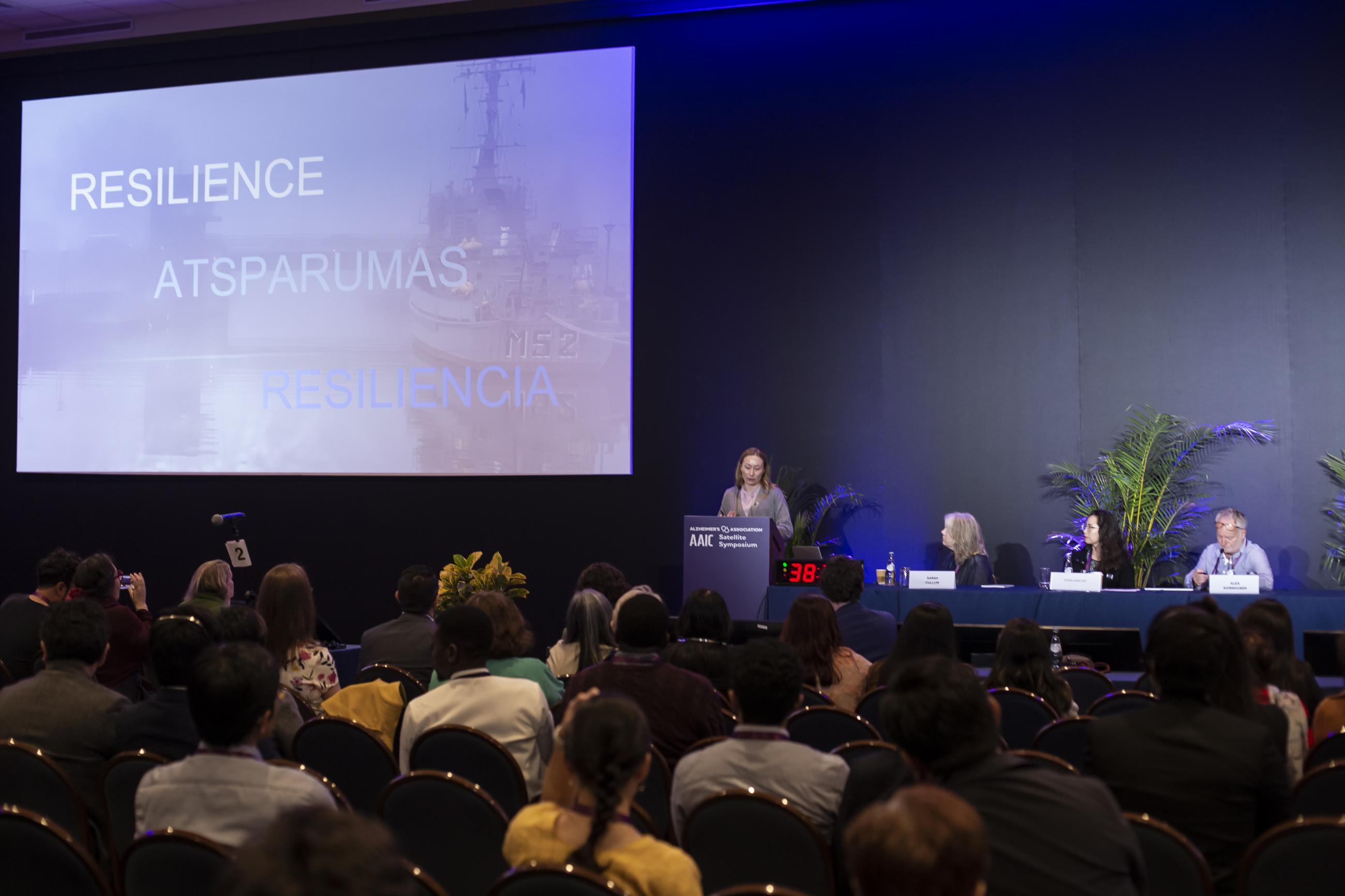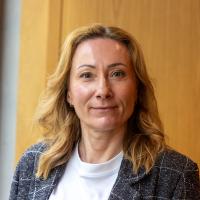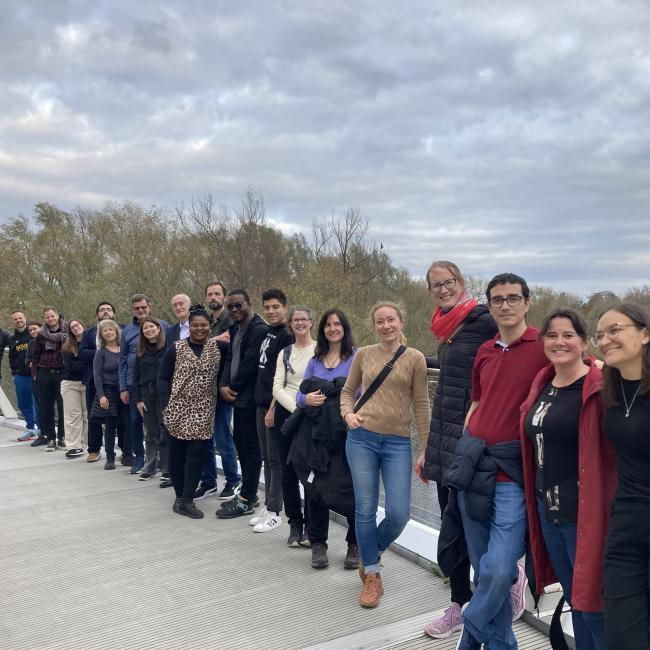Care is a Form of Leadership: What Caregiving Taught Me About Brain Health and Human Strength
In this perspective, Atlantic Fellow Sonata Mačiulskytė reflects on how her experience as a care partner for her mother reshaped her understanding of brain health, revealing care as a powerful and often overlooked form of leadership.

Atlantic Fellow Sonata Mačiulskytė speaks on the power of lived experience and caregiving as a source of insight and leadership at the AAIC Satellite Symposium in Lima, Peru, on May 15, 2025. Photo by Mario Colán.
We often imagine scientific conferences as places of data, theory, and precision. But at the AAIC Satellite Symposium in Lima, Peru, I stepped onto the stage with not a scientific result, but a lived experience. It was one of the most vulnerable moments of my academic life so far.
As a social scientist, I have spent more than two decades studying social vulnerability, aging, and participation. But nothing prepared me for what it truly means to care for someone with dementia. When my mother was diagnosed with Parkinson’s disease and, soon after, began showing symptoms of Lewy body disease, I became her caregiver. What I believed would be a brief pause in my academic career became a decade-long transformation.
What I shared in Lima wasn’t research results—it was a personal truth: care is a form of leadership. And resilience doesn’t always roar. Sometimes, it stays quiet. Present. Constant.
Caregiving taught me what I never thought deeply about before: that brain health is not only biological. It is social. Emotional. Structural. It lives in relationships. And it is deeply shaped by systems that either support or fail us.
In Lithuania, where I am from, dementia remains a difficult topic. Specialized services are scarce, stigma is high, and families are often left to navigate the dementia journey alone. Through caring, I learned what structural vulnerability really feels like - not just as an academic concept, but as a daily, embodied reality. Systems that don’t see the person behind the symptoms. Policies that overlook caregivers. Silence that becomes a form of exclusion.
Care is how we begin to reimagine what science can become.
—Sonata Mačiulskytė, Atlantic Fellow for Equity in Brain Health
In my talk, I spoke about guilt - the shadow that follows many caregivers. The guilt of not knowing enough. Of missing symptoms. Of not being able to fix what cannot be fixed. But caregiving also gave me clarity. A new way of seeing. And eventually, purpose.
I joined the Atlantic Fellowship for Equity in Brain Health seeking language and tools to bridge personal experience with systemic change. And I found a global community that believes what I had come to feel: that science is stronger when it holds space for story. That personal experience is not just a noise - it is knowledge.
During the closing session of the symposium, I was among the other Atlantic Fellows who shared their stories with honesty and courage. Hearing from Alex Kornhuber, Fernando Aguzzoli Peres, Mitchelle Memran and her mother, Sarah Cullum, and Sonia Sanches was both heartwarming and inspiring. Listening to them, I was reminded again: care is not a detour from science. It is its foundation.
We do not need to choose between evidence and emotion. Between rigor and empathy. Science with a heart is not a contradiction - it is a necessity.
If we truly want equitable brain health systems, we must listen to those living within them: people with dementia, caregivers, families. Their voices are not case studies. They are co-creators of insight. Equity is not only about access to services - it is about being seen. Being heard. Being held.
What my mother’s dementia taught me is that leadership begins in the invisible moments. In the daily decisions to return. To listen. To care. Caregiving is not a soft skill - it is a radical act of presence in a world that often turns away.
At the AAIC Satellite Symposium, I did not share the traditional research finding. I offered something else: a call to remember that the human heart is not a distraction from science—is the missing variable.
And care? Care is how we begin to reimagine what science can become.
Authors

Sonata Mačiulskytė, MSc, PhD
Academic Political Scientist, Gerontologist


